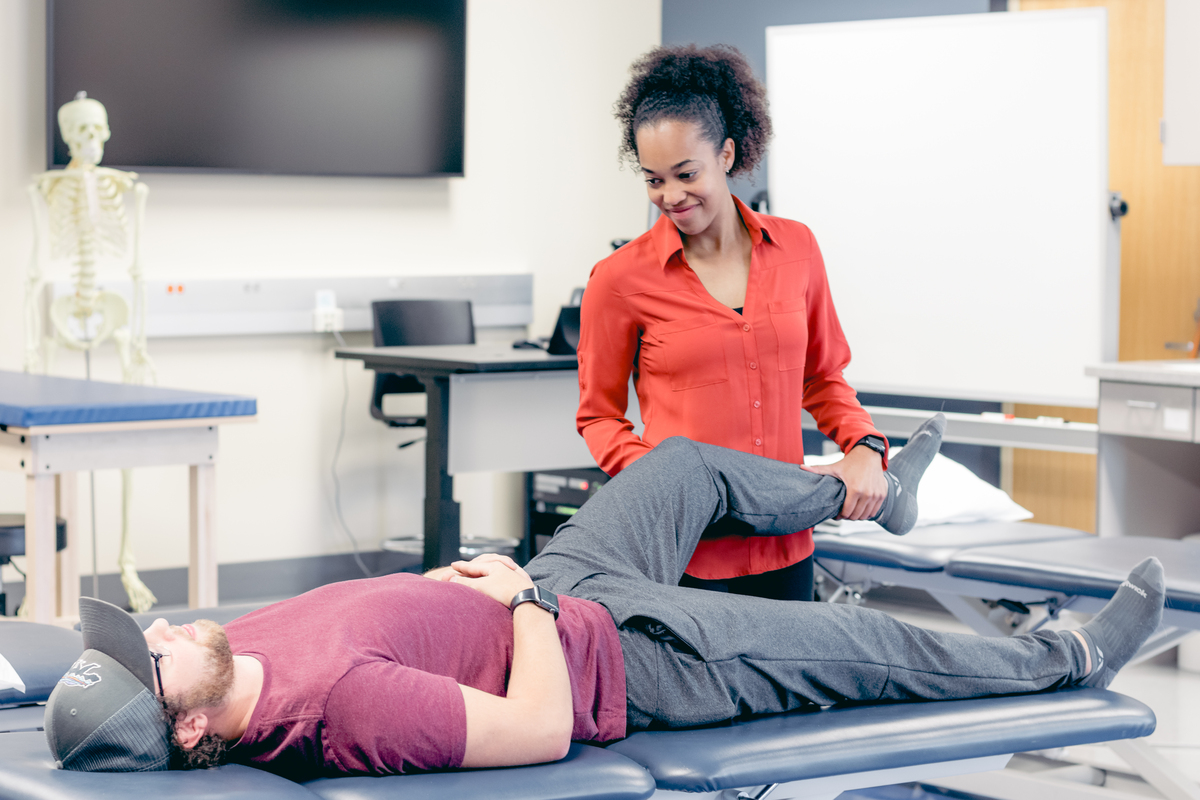Black History Month 2022: ‘I Felt Completely Comfortable to be Myself’
Feb 16, 2022
AT Alumna Wasn’t Sure What She’d Find in Kentucky
5 Questions with … Ariel Allman, MS, MBA, LAT, ATC, CEAS-I, CSCS
By Ryan Clark
CHS Communications Director
Ariel Allman says she never considered coming to Kentucky for school. In fact, she never considered coming to Kentucky for anything.
On the whole, her knowledge of the state was pretty much limited to the typical topics of basketball and horse racing. But when the aspiring athletic trainer from Orlando graduated from South Florida and began to investigate graduate schools, she was surprised to hear from peers and mentors that she should look at the Big Blue school up north.
“I imagined Kentucky to be very Southern-minded,” Allman said. “And that’s not really like where I’m from in central Florida at all. That’s a more diverse place, a tourist place of course, but a place with a lot of different kinds of people.”
She thought the state of Kentucky, as well as the University, would be a bit different. And, to be honest, she thought that maybe a person of color like herself may have a difficult time in an environment like that.
Then she visited campus. And everything changed.
As we in the College of Health and Sciences continue to celebrate Black History Month, we remain dedicated to working to provide an inclusive environment, one where students feel welcome and free to follow their dreams.
And sometimes, maybe we can even change some perspectives along the way. Although she has returned to her native Florida to work as an injury prevention specialist for Amazon, Allman says she will always keep a piece of her Old Kentucky Home in her heart.

Here’s 5 questions with UK alumna Ariel Allman, MS, MBA, LAT, ATC, CEAS-I, CSCS:
1. So what did you know about the University of Kentucky before you came?
I knew they had good athletics programs. The reason I applied is because they have a very well-known athletic training program, and by ‘well-known’ I mean that all of my professors told me about it. They said I needed to look there. In the end it came down to me deciding between three schools: Boston University, Georgia and Kentucky.
I thought I would probably go to Georgia, because I thought I could see myself living there. I did not see myself living in Boston or Kentucky. I just didn’t know enough about the places.
2. What changed your perception?
My interview. When I came to interview, I learned a little bit more about the UK program, but I also — and I know a lot of people say this but it’s true — I felt this family vibe. And every school says they have a family atmosphere. They do. But when I interviewed at UK I actually felt it. It was like they were telling the truth. And I was surprised that I wasn’t the only minority in my class. I saw other people of color, it was refreshing. And even in Lexington, I felt way more comfortable and included than I thought.
For the school and the program, I felt completely comfortable to be myself.
3. Then you were able to immerse yourself in a much different culture as part of the program, right?
Right. I worked as a grad assistant athletic trainer at Asbury University, which is a very small, religious school in Wilmore, Ky. — a very small place.
Very strict. Very religious. I always had to be very aware of how I was acting at all times. But in all jobs you have to learn how to interact with all different kinds of people and environments, so this was a very rewarding experience for me.
4. Similar to graduate school, I would think, right?
Yes. We were put into a program where there’s 15 to 20 of us. We all started living together and we became friends, even though some of it was forced. But we all actually became really, really cool and got to know each other, all these people from different backgrounds.
I was forced to experience different people and different lifestyles and beliefs. I had to get out of my comfort zone, in a sense, and go to a state where I didn't think I would necessarily be as included or accepted. But then I found out I was — and I was able to be around different people and learn things about myself and others.
5. Do you ever have others ask you about your time in Kentucky? What do they ask and what do you say?
It’s always a point of conversation. First, they ask me if I met Coach Calipari. (laughs). I have to tell them it doesn’t really work that way.
But when I tell people I lived in Kentucky for five years they always ask why. They always ask how it was. And I get to tell them how much I loved it. Whenever anyone tells me they’re interested in UK, I tell them to go. Explore a new place. It made such an impact on me to go to a new place — I grew so much personally and professionally.
Take the time to learn and grow. You can always come back home.
___________________________
February is Black History Month
Since 1976 the United States and Canada have designated the month of February to recognize the contributions of people of the African diaspora. The College of Health Sciences will be recognizing and honoring some of our own Black alumni and students throughout the month — celebrating success while we also acknowledge both historical and current inequity and the work that each of us must do to dismantle systemic racism. We also hope members of our community will join with the MLK Center for events throughout the month.